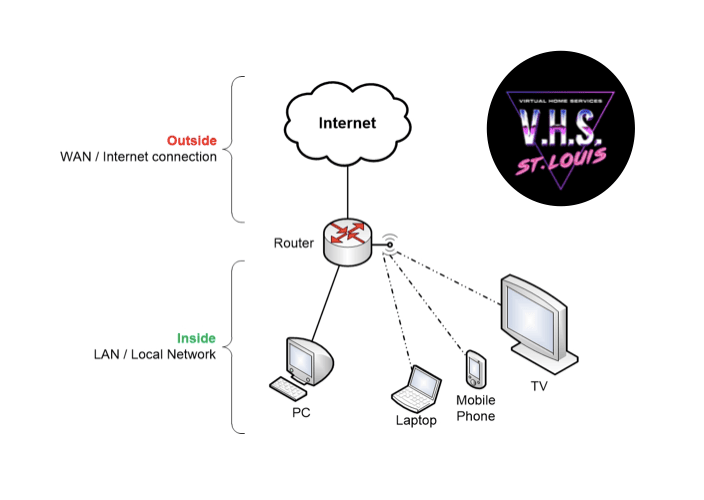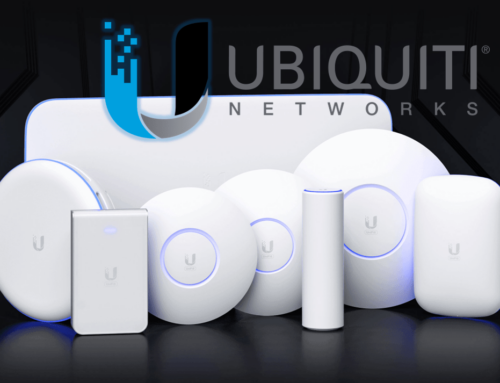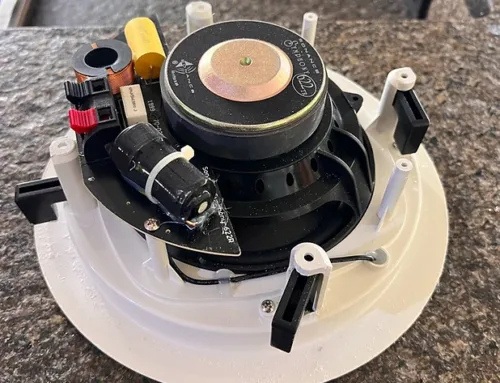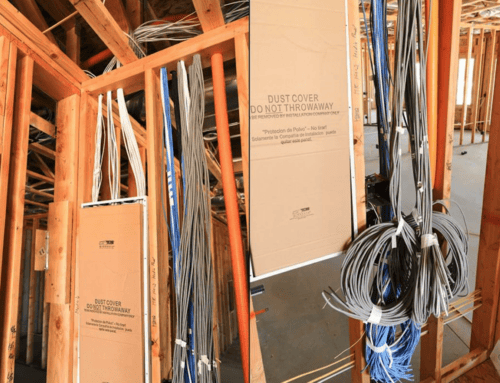When it comes to building your smart home, one of the best and most important investments you can make is in your home network. Your internet connection’s stability and reliability will ensure you have the bandwidth necessary to support your families technology needs, while more and more people are working from home this has never been more important. Each smart home device you add to your home will also need to be connected to the internet, so having a way to monitor that traffic to ensure everything is working properly will help lead to a better user experience. Read on to find out whether the router provided by your internet provider is sufficient, or if you could benefit from upgrading your network with a mesh system or hardwired access points.
Basics
Before we get into what specific products we recommend here at VHS, it’s important to learn some basic terminology so you can understand why these upgrades can make such a significant difference.

The first piece of equipment that you’ll find when looking at your home network is your modem. A modem is a device that connects your home, usually through a coax cable or fiberoptic connection, to your Internet service provider (ISP). The modem takes the signals from your ISP and translates them into signals your local devices can use. The connection between your house and the Internet is known as a wide area network (WAN). Each modem has an assigned public IP address that identifies it on the Internet.
Next is the router, while the modem brings the internet into your home, the router connects the internet to your individual devices. The router connects to your modem and then to your devices (laptops, smart TVs, printers, cameras, etc.) via either an Ethernet cable or WiFi signal. The router creates a local area network (LAN) within your house, allowing your devices to share files and peripherals like printers. Some ISPs have a modem and router combo unit.
Simply put, your router:
- Assigns a local IP address to each device on the network
- Creates a firewall to prevent security breaches
- Manages the traffic on your network
- Handles any Parental Controls
ISP Provided Router vs Your Own Router
The vast majority of homes utilize the router provided by their ISP, but there are a lot of things to consider when deciding if this is the right solution for your home. Most ISPs charge a monthly fee for the provided router, by purchasing your own, you can typically save some money. Thats not the most important thing, however. Where your own router really shines in comparison to the router proved by the ISP is in the following ways:
- The wifi signal from the ISP provided router, while sufficient for some, won’t have the strength to provide whole home reliable coverage for large homes or homes with construction materials like plaster walls.
- If you have kids in the house, the ISP provided routers typically lack in parental controls. With your own router, you can shut off the internet to specific devices and block adult content with the click of a button.
- Purchasing your own router also gives you access to more robust features like guest networks and bandwidth prioritization. Bandwidth prioritization has never been more important. By prioritizing bandwidth to certain users or devices, you can ensure you’ll have more reliable video calls if other people in your household are streaming movies or playing online games while you’re trying to work.
- Most importantly, having your own router with your own personal configuration and passwords will create a safer internet connection for you and your family. Having a properly configured router/firewall will help ensure your data is secure and protected.
Mesh Networks
For homes that are struggling with reliable wifi connections, one of our favorites solutions at VHS is a mesh network. How is this different from a traditional Wi-Fi network? In a traditional Wi-Fi network, your phone or laptop is connected to a single router, and all communication passes through that single router. The farther you are from the router, the weaker the signal.
With mesh systems, you’ll have multiple Wifi points in your house, so you’re never far from one.
Benefits of a mesh network include:
- Scalable coverage: Additional points can be added to get better coverage in hard-to-cover areas like hallways, basements, and for outdoor coverage.
- Self healing: In a mesh network, if one point goes down, communication is simply rerouted through another point. Note: If your router or primary point goes offline (the one connected to your modem), so will your entire network.
- Direct path: Since all of the points are connected to each other, data can take several paths toward its destination and it’ll always choose the best route from Point A to Point B.
- App based: Troubleshooting and configuration is typically done via an app, this gives users the intuitive ability to troubleshoot whether an issue is LAN or WAN related.
Access Points
The gold standard for a home network would be having a router as well as wired access points (APs). While a mesh system works extremely well for casting a broad wifi network over your home, they do have their shortcomings. By leveraging wired APs, you get the benefit of Wifi being broadcast from multiple points like with a mesh system, however, mesh networks are built to connect to each other wirelessly while APs have a direct ethernet connection back to the router (and typically a switch). While APs will give you the best wifi coverage and performance, they do come at a premium. The hardware itself is comparable in pricing, but most homes will require low voltage wiring be retrofitted to support the installation of the APs. VHS has you covered, our team can take care of the wiring.
Closing
There are a lot of things to consider when starting to add smart home technology to your house, but an upgraded home network is an important place to start and really the foundation for a reliable user experience. The VHS team can look at your current setup and make recommendations based on your own unique needs. Whether it be upgrading to mesh or APs, we can help you get the performance you need to support your technology for years to come.





